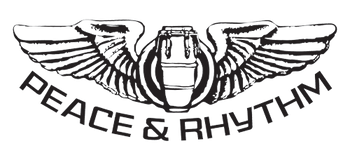
Happy birthday to the harmolodic genius Ornette Coleman! His saxophone crying and unique compositional style were as groundbreaking on the avant-garde jazz front as John Coltrane, Cecil Taylor & Sunny Murray, Sun Ra and Albert Ayler were in that new freedom era that started in the late '50s and caused an avalanche of free-jazz in the '60s. In fact, it was Coleman's "double-quartet" album, Free Jazz -from '60, which gave name to a whole genre to follow.
The musical revolutionary grew up poor in Fort Worth TX and learned to sight-read and started teaching himself alto sax at 14, right when Charlie Parker was taking off with his own inventive approach. Coleman spent his early professional years in Texas, working in R&B & bebop bands with the likes of Prince Lasha, Bobby Bradford, King Curtis and Charles Moffett before hitting the road with a minstrel show in '49.
He ended up in Los Angeles in the early '50s with a plastic alto and he developed a radical approach to blues & bop, in which the individual soloists could play as freely off the head as they wanted, creating a personal artistic statement that caused many to insist his approach was not the "right way". His music broke meter, represented new harmonic ideas and encouraged free expression within the group contexts. To many, he seemed out-of-tune. But then again, this was the man who brought us The Shape of Jazz To Come.
Paul Bley was an early supporter of this revolutionary approach, playing with Ornette in L.A. in the mid-'50s. He also found willing partners and longtime collaborators in Don Cherry and Charlie Haden. In '59 he went east to the Lenox School of Music in Western Massachusetts and then to NYC where he was an immediately polarizing figure on the scene. (Interesting story: Lionel Hampton was so impressed with an early NYC show by Ornette's group that he asked if he could sit in with them. I can't find any proof that Hamp did end up joining them, but that would be something).
He signed to Atlantic and dispensed with piano, recording several records that still sound fresh today, not the least of which is the pioneering Free Jazz, and he also recorded an album on tenor among the string of classics. After taking a mini-retirement, he resurfaced with new ideas for trumpet and left-handed violin and could be heard on all three of his axes in his trio with David Izenzon and Charles Moffett (check out Live at the Golden Circle). His album he licensed to ESP-Disk (Town Hall, 1962 - with string section!) was from a concert he self-financed, paving the way for more DIY out-jazz action. He also recorded for Blue Note, Impulse!, Artists House, Columbia and, in the '90s, Verve and others. His '66 album for Blue Note, The Empty Foxhole, was controversial in that his ten year-old drummer son, Denardo Coleman, debuted on the album. As charming as it is, Denardo certainly developed into a fine player in his own right, becoming a regular drummer for his father. He also hosted concerts in his Prince St loft, which doubled as a studio. (Oneness of Juju, then known as Ju-Ju, made their early recordings there).
In the early '70s he wrote for chamber groups and the symphonic Skies of America project. In '73 he was in Morocco, recording with the Master Musicians of Jajouka, followed by some exploration in Nigeria, both of which contributed to his harmolodic concept for life and music. His own definition of harmolodics: "the use of the physical and the mental of one's own logic made into an expression of sound to bring about the musical sensation of unison executed by a single person or with a group." He applied this to his "free-funk" band Prime Time, starting in the mid-'70s, which included players such as James "Blood" Ulmer, Jamaaladeen Tacuma, Ronald Shannon Jackson and Denardo, among others.
He did some transcriptions for Alice Coltrane, took turns on albums by Jackie McLean, Yoko Ono, James "Blood" Ulmer, Pat Metheny, Eddy Grant and Lou Reed, played in concert with the Grateful Dead and ran his career and art on his own terms.
He contributed revolutionary, world-changing music and a fierce commitment to originality, while managing to control his career and releasing only what he wanted and charging what he thought he was worth for concerts. One of the greatest American composers and musicians.
Here's that now-standard "Lonely Woman", from '59, one of Ornette's best and most-recognized compositions:
The musical shot heard around the world:
You can hear Coleman guesting on trumpet on this fine soul-jazz album from Jackie McLean, '67:
Ornette jamming with the Master Musicians of Morocco:
Here's a fun one where Charlie Haden gets freaky on the bass:
The underrated '78 album Body Meta:
Complete stream of Prime Time's Opening The Caravan of Dreams album:
Jerry Garcia guesting on 1988's Virgin Beauty:
If you've ever wanted to know what an Ornette composition would sound like as played by a bluegrass artist, here you go:
If you've ever wanted to know what an Ornette composition would sound like as played by a skronk-punk band, here you go:
And finally, we have this dandy:
Live 1991:
